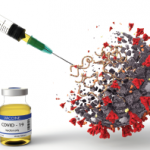In this large placebo-controlled trial, Sparks et al. examined the predictors and severity of pulmonary adverse events (AEs) in patients taking low-dose MTX. The researchers found that low-dose MTX increased the risk of pulmonary AEs, including possible pneumonitis.

Tofacitinib Promising for Adults with AS
According to a recent phase 3 study, tofacitinib may be a safe and effective treatment for adult patients with ankylosing spondylitis (AS).
Upadacitinib Safety Similar to Other Jakinibs for RA
(Reuters Health)—A once-daily 15 mg dose of upadacitinib for rheumatoid arthritis (RA) has similar rates of malignancies, serious infections, major adverse cardiovascular events, and venous thromboembolic events as other Janus kinase inhibitors (jakinibs), results from phase 3 clinical trials suggest. Researchers examined data on treatment emergent adverse events among patients taking upadacitinib in five randomized…

Advantages of Embedding a Specialty Pharmacist in a Rheumatology Clinic
The number of medications with rheumatologic indications has increased in parallel with expanding complexities of medication approval and delivery. Simply starting a patient on a biologic medication or new disease-modifying anti-rheumatic drug (DMARD) can be time consuming and frustrating for physicians, nurses and their support staff. In addition to educating the patient and obtaining prior…

New Findings on Hydroxychloroquine, Denosumab
ACR Convergence 2020—At two plenary sessions, speakers highlighted key findings, including results on the QTc interval in patients on hydroxychloroquine, and data from a study on denosumab vs. alendronate for glucocorticoid-induced osteoporosis. The QTc Interval & Hydroxychloroquine The safety profile and optimal dosing of hydroxychloroquine has been a topic for decades because it is known…

The Great Debate: Should Jakinibs Be Used Before Biologics after Methotrexate Failure in RA?
ACR CONVERGENCE 2020—In many ways, the current plethora of treatment options for rheumatoid arthritis patients represents an embarrassment of riches. However, while many therapeutics approved by the U.S. Food & Drug Administration (FDA) are available, knowing the order in which to try these medications with patients can be quite challenging. In The Great Debate, held…

High Opioid Prescription Rates Seen in Emergency Department-Treated Gout
Acute gout can be very painful, causing patients to seek treatment in the emergency department. A retrospective study of pain interventions for gout in Rhode Island found that nearly 30% of patients received prescriptions for opioid medications over 30 months. Of these prescriptions, over 80% were for patients who had never been exposed to opioids…

FDA Warning: Avoid Use of NSAIDs after Week 20 of Pregnancy
The FDA is recommending pregnant women avoid using NSAIDs as early as week 20 of pregnancy due to the risk of kidney problems in a developing fetus.

FDA Approves Golimumab for Patients with pJIA & Psoriatic Arthritis
The FDA has approved golimumab for the treatment of pediatric patients with active polyarticular juvenile idiopathic arthritis or active psoriatic arthritis…

Space & Other Races
On April 5, 1950, a small group of scientists met in Silver Spring, Md., to talk about geophysics. I know this is not the most riveting way to start, but if you stick with me, I promise the story will get much more interesting. This group of scientists met to discuss all that was still…
- « Previous Page
- 1
- …
- 26
- 27
- 28
- 29
- 30
- …
- 126
- Next Page »